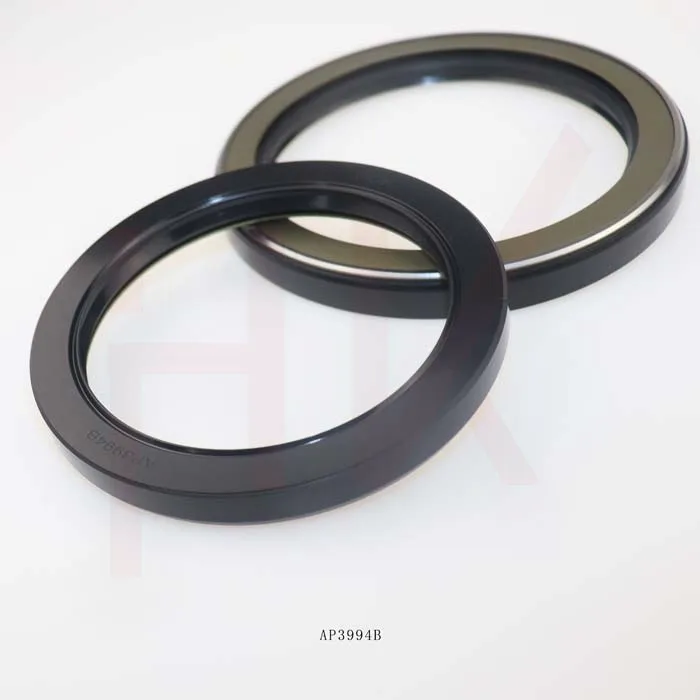វិច្ឆិកា . 29, 2024 11:02 Back to list
High Temperature Resistance in Oil Seals for Enhanced Performance and Durability
Understanding High Temperature Oil Seals Essential Components for Industry
In industrial machinery and automotive applications, the performance and longevity of equipment significantly depend on the components used. Among these, oil seals play a crucial role in ensuring efficient operation and maintaining the integrity of machinery. This article explores the importance of high temperature oil seals, their applications, and the materials and technologies that enhance their performance in extreme conditions.
What are Oil Seals?
Oil seals, often referred to as dust seals or rotary shaft seals, are crucial components used to prevent the leakage of lubricants from machinery while also keeping contaminants like dust and dirt from entering the lubrication system. These seals are essential for maintaining optimal performance, reducing friction, and extending the life of machinery.
The Challenge of High Temperatures
Oil seals are exposed to various operating conditions, including temperature fluctuations, which can significantly affect their performance and durability. High temperature oils seals are specifically designed to withstand elevated temperatures without compromising their sealing capabilities. In many applications, oil can reach extreme temperatures due to the nature of the work—such as in engines, transmissions, and hydraulic systems—making high temperature oil seals indispensable.
Applications of High Temperature Oil Seals
High temperature oil seals find applications in numerous industries, including automotive, aerospace, manufacturing, and telecommunications. In automotive applications, these seals are used in engines, gearbox assemblies, and differential housings to ensure that lubricant oil remains contained. In aerospace, they are critical for aircraft engines and hydraulic systems, where reliability and performance are paramount.
In addition to traditional machinery, high temperature oil seals are also implemented in renewable energy systems, such as wind turbines. These systems experience extreme conditions, demanding seals that guarantee a tight barrier against both oil leakage and environmental contaminants.
Materials Used in High Temperature Oil Seals
high temp oil seal

The effectiveness of high temperature oil seals is closely related to the materials used in their construction. Common materials include
1. Fluoroelastomers (FKM) These are highly resistant to heat, oils, and chemicals, making them ideal for high temperature environments. They maintain their elasticity and sealing capabilities even at elevated temperatures.
2. Polyurethane (PU) Known for its excellent abrasion resistance, polyurethane is also suitable for high-temperature applications. Its flexibility and strength make it a popular choice for seals in various industries.
3. Silicone While not always suitable for heavy-duty applications, silicone seals offer excellent heat resistance and are often used in automotive and appliances where temperatures can fluctuate widely.
4. PTFE (Polytetrafluoroethylene) This material, known for its exceptional chemical resistance and ability to withstand high temperatures, is often used in more demanding sealing applications.
Innovations in High Temperature Oil Seals
As technology advances, the design and manufacturing of high temperature oil seals are evolving. Recent innovations include composite materials that enhance thermal stability and resilience under pressure, as well as improved manufacturing techniques that enable more precise fitting and reliability.
Manufacturers are also increasingly using simulation technology during the design phase to predict how seals will perform under various conditions. This not only speeds up the development process but also leads to better-performing products.
Conclusion
High temperature oil seals are pivotal in ensuring the performance and longevity of machinery across diverse industries. Their ability to withstand extreme conditions while effectively sealing lubricants makes them an invaluable component in any application where oil containment and protection from contaminants are necessary. As industries continue to push the boundaries of engineering and technology, the development of advanced oil seals is essential to meet the demands of modern applications. With ongoing innovations in materials and design, the future looks promising for high temperature oil seals, promising enhanced performance and durability in even the most challenging environments.
-
The Trans-formative Journey of Wheel Hub Oil Seals
NewsJun.06,2025
-
Graphene-Enhanced Oil Seals: Revolutionizing High-Pressure Oil Sealing
NewsJun.06,2025
-
Future of Hydraulic Sealing: Advanced Intelligent TCN Oil Seals
NewsJun.06,2025
-
Don’t Let a Broken TCV Oil Seal Ruin Your Day
NewsJun.06,2025
-
Bio-Inspired Dust Seals for Better Sealing Performance
NewsJun.06,2025
-
Biodegradable and Sustainable Hydraulic Seal Materials
NewsJun.06,2025
-
Top Oil Seal Solutions for Your Industrial Needs
NewsMay.22,2025
Products categories
















